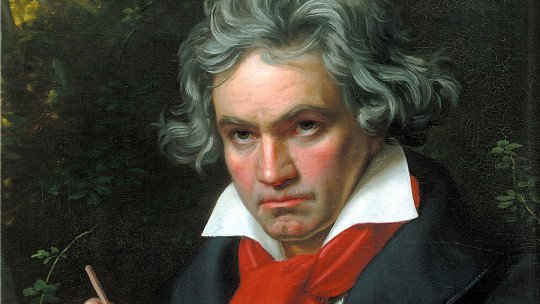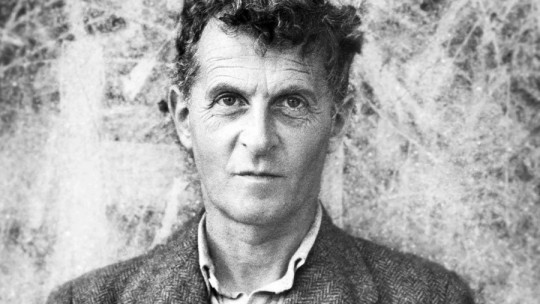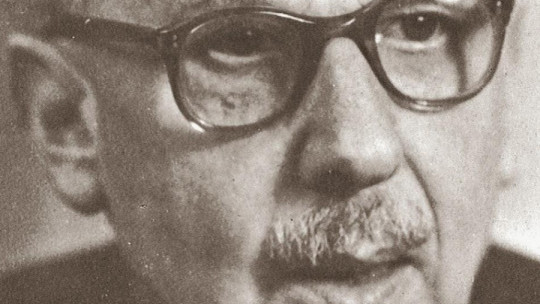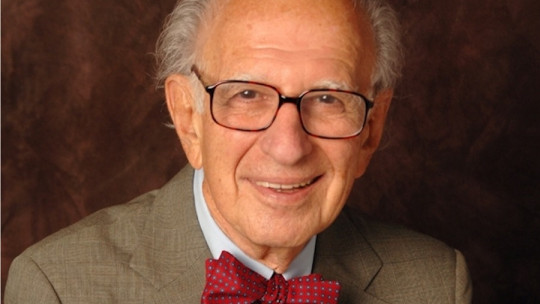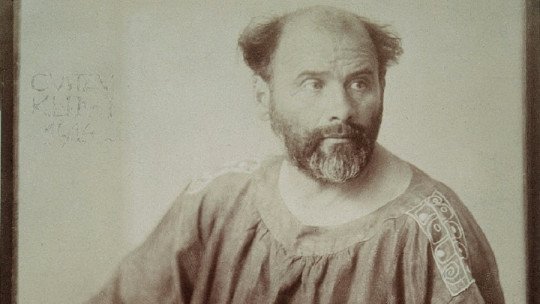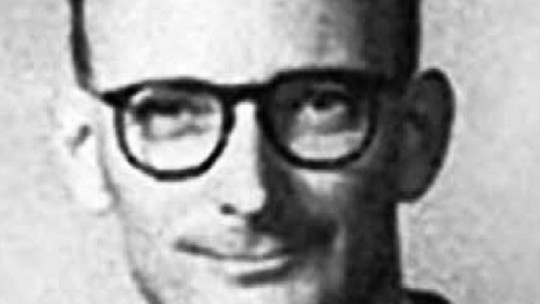Ludwig van Beethoven is possibly the best-known composer after Mozart. Much has been written about him and multitudes of films have been made, generally emphasizing his proverbial bad mood, his solitary existence, and his famous deafness.
But what is behind the myth? Who really was Ludwig van Beethoven? In this biography of Beethoven you will learn about the life of this composer from his childhood in Bonn to his adulthood in Vienna, and we will analyze why he is considered one of the greatest geniuses in music.
Brief biography of Ludwig van Beethoven
Beethoven is, indeed, one of the greatest composers in history. And not only because of his natural talent, which many placed on the same level as Mozart, but because, despite the increasing deafness that he suffered (and which became practically complete during the last stage of his life) He managed to create compositions that are authentic masterpieces of universal music We are going to briefly travel through his life and his work.
a sad childhood
Ludwig was born in Bonn in December 1770, a city in present-day Germany that, in the 18th century, belonged to the Archbishopric of Cologne. He had been baptized on December 17 in the church of San Remigio with the name of his older brother, who died the previous year. Thus, from the moment of his birth, Ludwig carried on his back the ghost of his brother, the lamented firstborn
His mother, María Magdalena Keverich, had been widowed by her first husband when she was only 19 years old. In 1767 she married Johann van Beethoven, son of a chapel master at the court of Cologne, so, at first, the father opposed the marriage, considering Mary Magdalene’s family as socially inferior. However, this grandfather was one of those who encouraged the little boy’s musical vocation, introducing him from a very young age to the musical arts, in which Ludwig stood out from his early years.
His father was also a music fan and, upon observing his son’s innate talent, he set out to make him a “new Mozart.” In those years It was very fashionable for the sons and daughters of more or less wealthy families to go on musical tours of the houses and the wealthy courts of Europe. This is what Leopold Mozart had done with his little ones Wolfgang and Anna María, who performed in various European capitals from a very young age. Johann van Beethoven did not want his son to be left behind, and not only took advantage of his undeniable and surprising musical qualities in this sense, but also gave him the best teachers to perfect his talent.
However, behind all this scenery of lights, fame and glory, it doesn’t seem like little Ludwig was too happy. For starters, his father was an alcoholic, an addiction he had apparently inherited from his mother, Beethoven’s grandmother. Later, when Ludwig was still very young, his mother died from tuberculosis, as would his brother Karl years later, which caused the young musician to a kind of terror of developing the disease a fear that would accompany him for the rest of his life.
The death of Mary Magdalene and the alcoholism of his father, who ended up in prison, meant that Ludwig had to take care of his younger brothers from an early age. For them he always felt a kind of paternal affection, especially for Karl, with whom he was very close.
The “successor of Mozart”
The first teacher that Johann gives his son is Christian Gottlob Neefe, a German composer, who took the little boy’s musical and intellectual education very seriously. Later, Beethoven received classes from such famous people as Joseph Haydn and Antonio Salieri, and even, if some rumors that have not been confirmed are true, even from Mozart himself. But, although it is true that the two geniuses met in Vienna sometime in 1787, When Beethoven was sixteen years old and Mozart was thirty-one, there is no evidence to verify that they maintained extensive contact
Beethoven’s first published work, Nine Variations on a March by Ernst Christoph Dressler, was released in 1782. The young composer was only eleven years old and was already a promising musician with a successful career ahead of him. Neefe, impressed by the precocious talent of his pupil, interceded with the prince-elector of Cologne to have Beethoven hired for the court orchestra. He was twelve years old, and in certain cultural circles they already speak of him as the “successor of Mozart.”
The loneliness of a classical music genius
In 1792, at the age of twenty-two, Beethoven settled permanently in Vienna, at the request of the prince elector , who wants the young man to perfect his talent and find patrons to help him rise to the top. Beethoven accepts his fate, mainly because he loves his work and knows that in Vienna he has a good chance of success. However, deep in his heart he feels a certain animosity towards a city in which he never felt fully accepted or understood.
This condition of “lonely soul” that has always accompanied the figure of Beethoven was undoubtedly contributed by an illness that began to afflict him in 1796 and that continued to worsen over time: deafness. From the letter that was found among his papers after his death (a letter to his brothers that he never sent), and which is known as the “Heiligenstadt will” because of the place where it was written, we know that this evil sank Beethoven suffered from depression, as he feared that deafness would prevent him from realizing his dream of composing immortal works.
In this letter he confesses to his brothers that the idea of suicide has crossed his mind, and that only his art, that is, music, has made him give it up. It is a heartbreaking testimony in which we verify that, If Beethoven was a taciturn and bad-tempered person, it was partly because of his hearing problems and the multiple ailments he suffered some very severe and which, in the end, caused his premature death.
Dr. Osvaldo Llanos López, in his work entitled Ludwig van Beethoven’s illnesses (see bibliography), points out several of the illnesses that the musician suffered. According to Dr. Llanos, Beethoven suffered from smallpox in his youth, which left the characteristic marks of the disease on his face. Throughout his life he had frequent respiratory crises, which increased his fear of suffering from tuberculosis (the terrible disease that, let us remember, had killed his mother and brother).
Between 1790 and 1795 Beethoven began to develop symptoms of intestinal problems that resulted in frequent diarrhea and cramps, to which were added painful headaches. With such a health condition and the depressive episodes that he was experiencing, it is not surprising that the musician almost always maintained a dark humor, as well as a brusque and limited treatment with his peers.
Dr. Osvaldo’s work also includes the autopsy that was performed on the composer’s body the day after his death, which mentions the unusual size of organs such as the pancreas, spleen and liver. On the other hand, a recent study of some of his locks of hair has brought to light that the composer had risk factors in his DNA regarding liver diseases, as well as that he suffered from Hepatitis B. .
Between classicism and romanticism
Let’s return to Vienna, where, despite everything, his career takes off and grows like wildfire. In 1798 he decided to compose a symphony in honor of Napoleon Bonaparte , the “great man” of the moment (the Corsican was part of the French Directory, the government that had taken over the reins of France after the end of the Terror). Beethoven greatly admired Napoleon, and solemnly dedicated to him his 3rd symphony, which he called Bonaparte. However, when the Great Corsican later proclaimed himself emperor, Ludwig could not bear what he considered a betrayal and renamed the symphony after him, which has since been known simply as The Heroic.
Beethoven composed nine symphonies throughout his life, and they say that, shortly before he died, he had the idea of composing a tenth, and even left some sketches. Of all of them, the most famous are the aforementioned 3rd symphony, the 6th (known as Pastoral) and, of course, the 9th, where it includes a chorus fragment of impressive strength. In addition to the symphonies for which he is famous, Beethoven composed concertos, chamber music, and piano compositions, such as the famous Moonlight (Piano Sonata No. 14), published in 1802, and Piano Sonata No. 8, known as The pathetic for his extraordinary expressive capacity.
Beethoven’s work is mainly framed in so-called classical music, commonly and erroneously identified with all music prior to the 20th century This is not like this; Strictly speaking, “classical” music corresponds only to the musical period of the late 18th and early 19th centuries, and is characterized by its balance and clarity (in parallel with the neoclassical aesthetics of the plastic arts) and by the definitive establishment of forms. musicals of the sonata, the symphony and the concerto, among others.
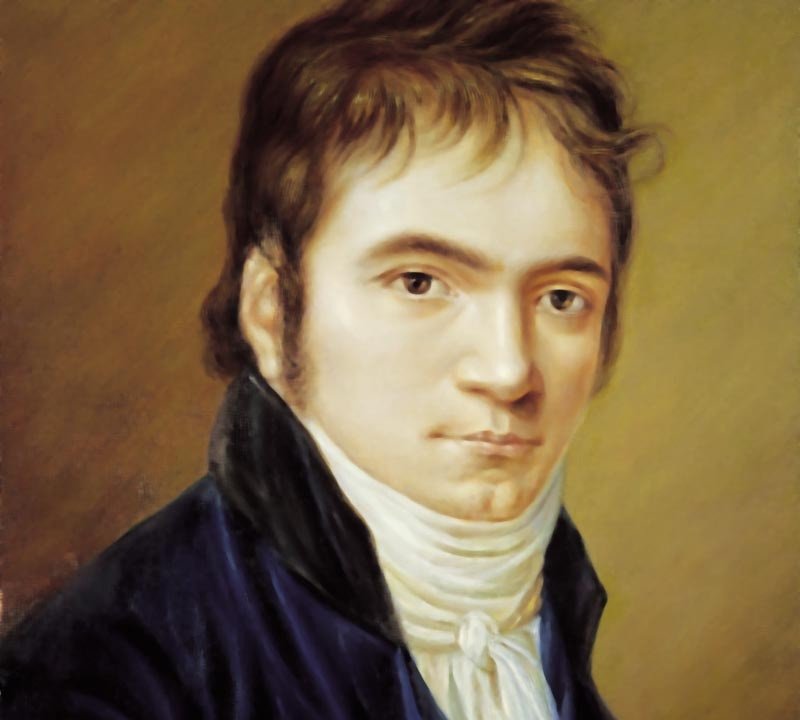
But a genius like Beethoven could not be oblivious to the changes that were taking place in the European musical panorama. Already at the end of the 18th century, his work began to show influences from early Romanticism, with its high expressiveness and chromatic abruptness. Clear examples of this are the already mentioned Moonlight and the 5th Symphony, whose powerful introduction is one of the most famous musical passages of all time.
The “Immortal Beloved”
Beethoven never married, but, despite his chronic loneliness, he maintained both friendly and emotional relationships with various women. Of all of them, the best known are the relationship he had with Josephine Brunsvik , to which, according to the Beethovenhaus in Bonn, the composer had addressed some fourteen love letters. The truly passionate language of these letters suggests that Beethoven was sincerely in love with Josephine, whom he calls “my angel” and “my everything.”
Similar is the style of the famous letter that was found among Beethoven’s papers once the composer died. In it, Ludwig addresses an “immortal beloved,” as he himself calls her, and he also addresses her as “my everything” and “my self.” This has led many students of the musician’s life to assume that the mysterious “immortal beloved,” the recipient of the letter found on Beethoven’s desk and dated July 1812, is none other than Josephine Brunsvik.
Other scholars point to another of the great women in Beethoven’s life as an ideal candidate to be the “immortal beloved”: Antoine Brentano. The composer met the young woman in the spring of 1810 and, since then, they maintained a great friendship, in which romance cannot be ruled out.
The last dark years
By the end of his life, the deafness from which the composer had suffered since the age of twenty-six had become almost complete His right ear no longer picked up any sound, and with his left he already had serious hearing difficulties. Despite this, Beethoven managed to compose his 9th symphony, one of his most famous works, which premiered to great public success.
His brother Kaspar Karl had died in 1815 of tuberculosis, and since then Beethoven maintained a stormy rivalry with his sister-in-law, who did not want the guardianship of Karl, Beethoven’s nephew, to fall to his uncle. The mother took the matter to court, and the little boy constantly changed hands. Karl could not see his uncle, who, on the other hand, seemed to profess a kind of adoration for him, perhaps in memory of his father, for whom Ludwig had a deep affection.
The problems with his sister-in-law and his nephew, who attempted suicide in 1826, aggravate Beethoven’s mental health, already deteriorated by his stubborn loneliness and endless illnesses. During the last year of his life, his health declines rapidly, and by March 1827 he is already bedridden. On March 26, and after lamenting the delay in the arrival of the Rhine wine that he had ordered, Beethoven breathes his last breath. He was 56 years old.
Hugely admired by his contemporaries (despite his difficult character), His funeral drew a crowd of 20,000 people At his funeral the Requiem of Mozart, the other great genius of music, who had died 37 years ago. Franz Schubert, a fervent admirer of Beethoven, attended his funeral. The young musician was unaware that he would soon follow his idol, since he would die in 1828, at the age of 31.

